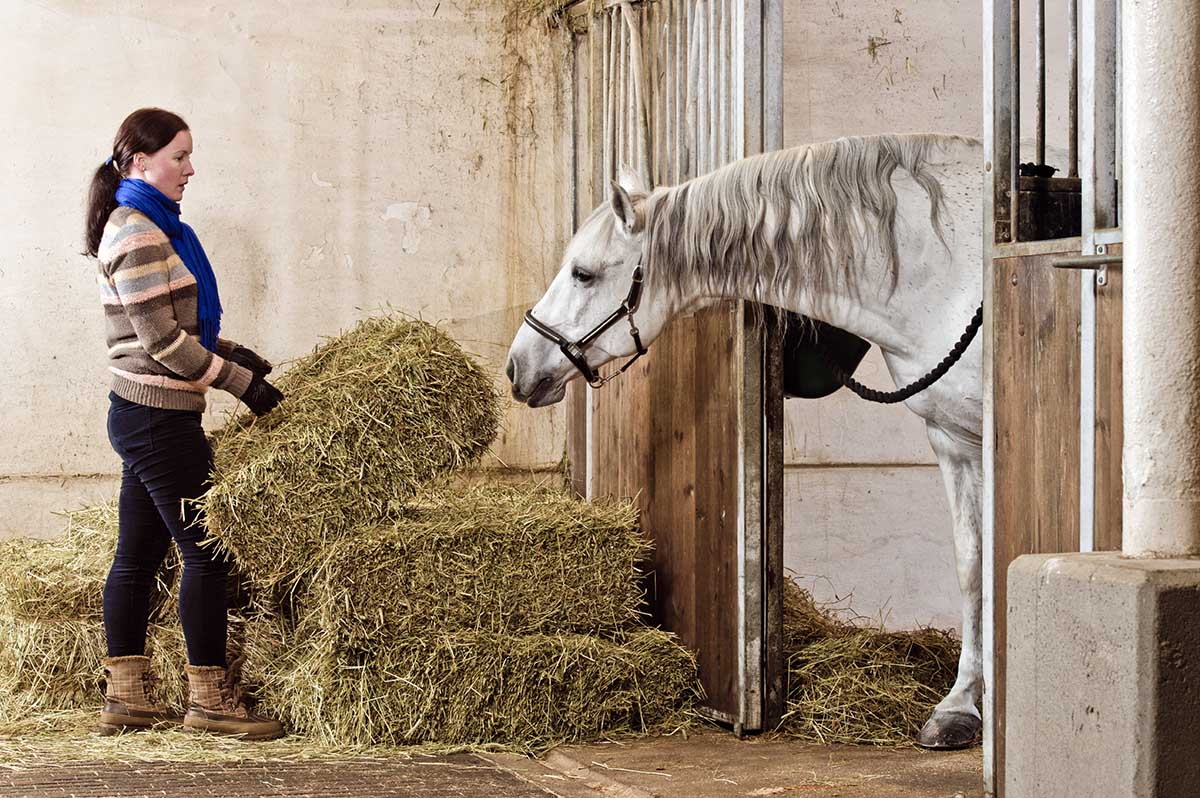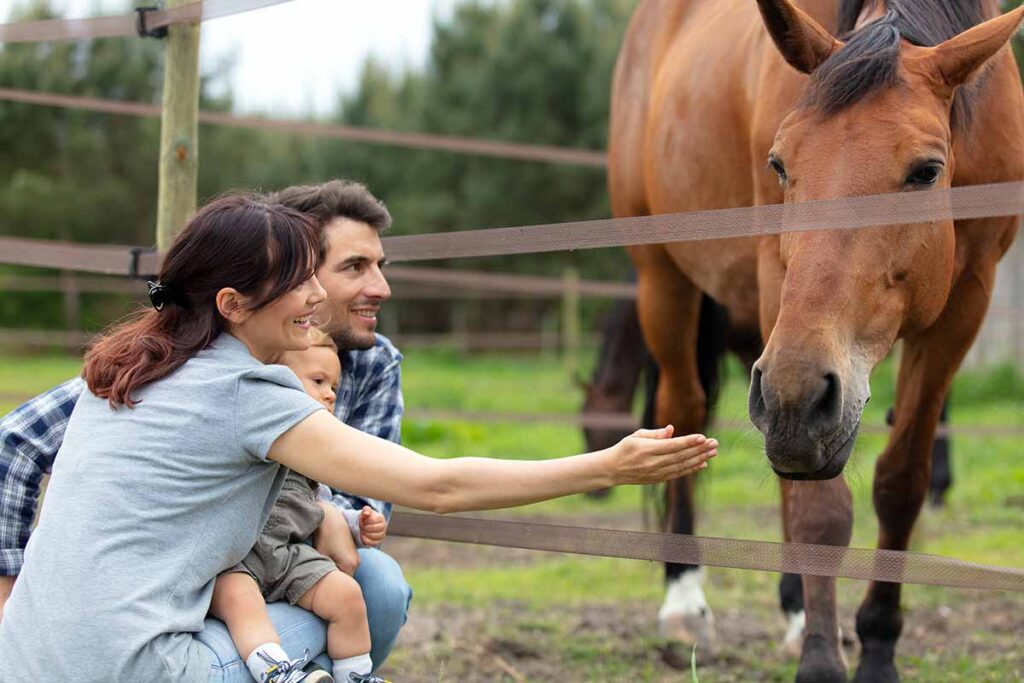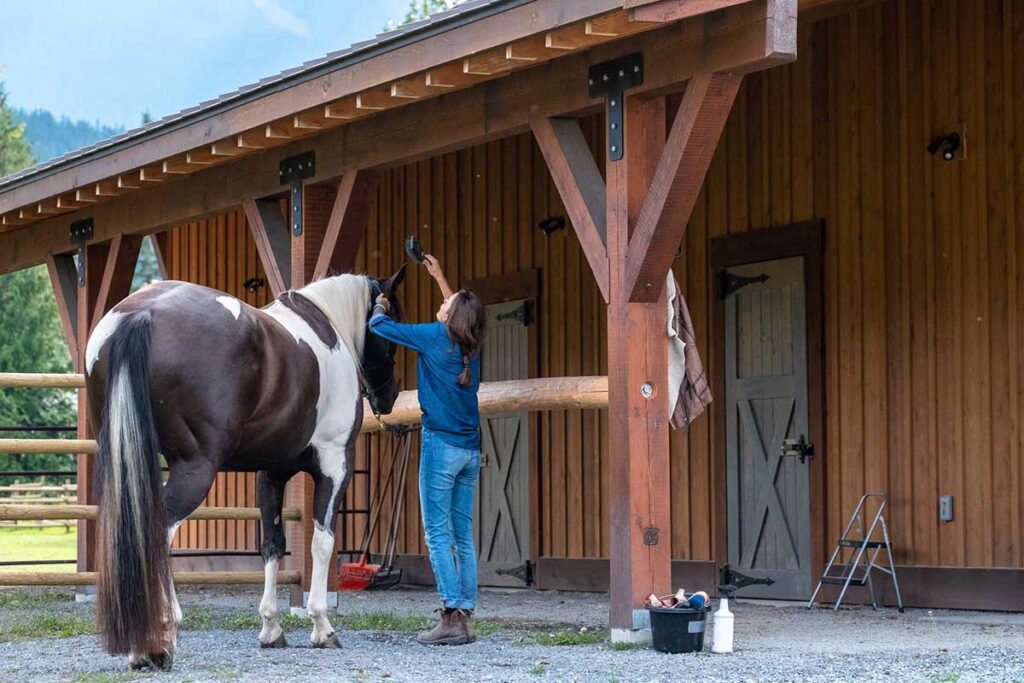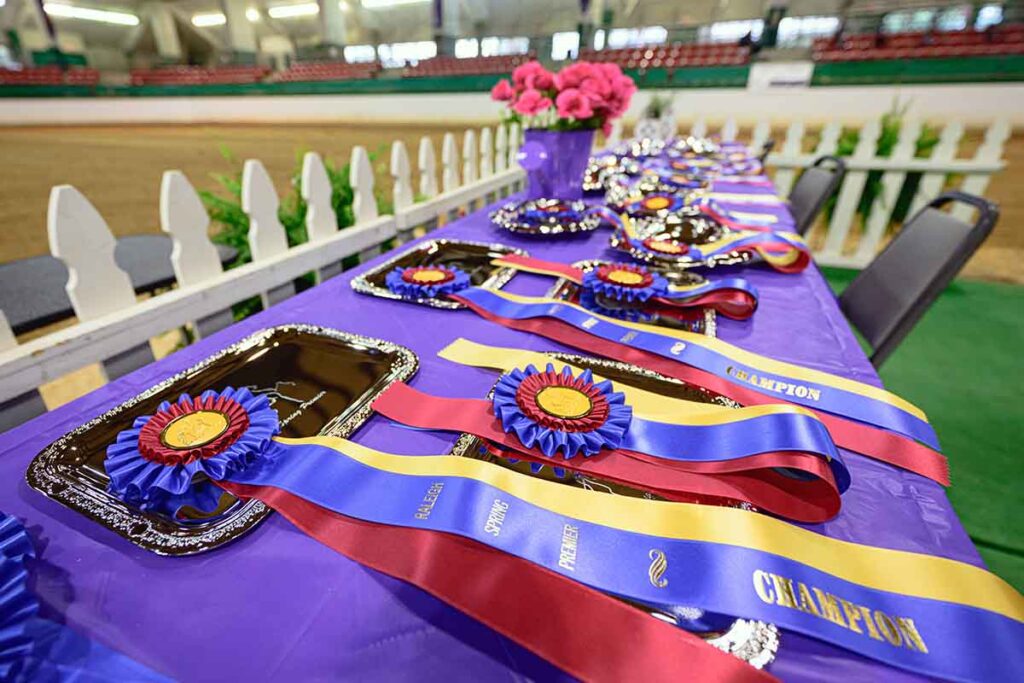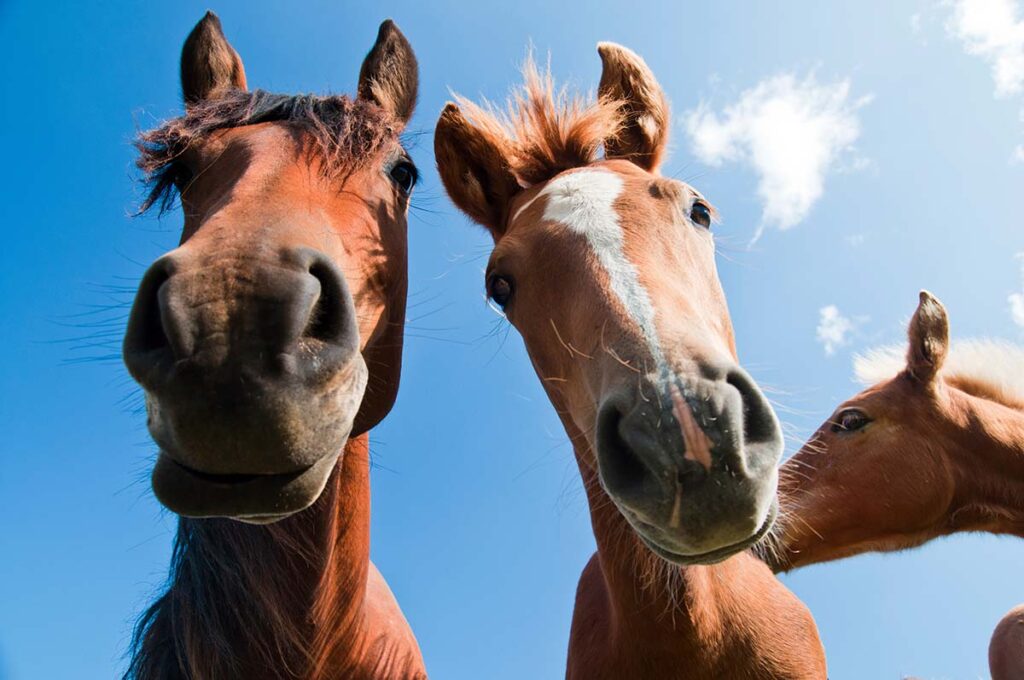Gastric ulcers in horses are so common, 60-90% of the equine population might have them. Depending on your horse’s age, workload, and lifestyle, it stands to reason he’ll develop these painful stomach lining lesions at some point. Fortunately, gastric ulcers have effective treatments, and you can make management changes to reduce your horse’s risk of developing them. Read on for a crash course in equine gastric ulcers.
Just the Basics
Here’s the basic information you need to know about gastric ulcers in horses:
| Definition | Erosions in the stomach lining. |
| Causes | Most gastric ulcers are squamous, which occur when excess acid from the lower portion of the stomach is forced into the relatively unprotected upper part. Ulcers might also develop in the lower glandular portion of the stomach. |
| Risk Factors | Stress, illness, high-grain, low-forage diets, intensive training, medications such as phenylbutazone. |
| Signs | Poor appetite, fussy eating, intermittent mild colics, grinding of the teeth, weight loss, poor performance, a dull coat, sensitivity to girthing, a generally grumpy or aggressive attitude. |
| Diagnosis | An endoscopic examination—the passage of a camera and light source down into the stomach to view the lining directly—is the only definitive way to diagnose gastric ulcers. However, veterinarians might choose to treat a horse for ulcers based only on evaluation of risk factors and signs. |
| Treatment | The omeprazole products GastroGard and UlcerGard are the only drugs approved by the Food and Drug Administration to treat and prevent gastric ulcers in horses. Omeprazole, which works by decreasing the amount of acid produced in the stomach, is safe and effective with no reported side effects. Lifestyle changes to reduce a horse’s risk factors for ulcers are also advised. |
How To Prevent Gastric Ulcers in Horses
Any horse can develop gastric ulcers. Ulcers sometimes have little, if any, outward effect on the horse’s health or performance. But they can cause constant pain, a condition called equine gastric ulcer syndrome. The effects of ulcers can include poor appetite, intermittent mild colics, weight loss, poor performance, a poor hair coat, and a generally grumpy or aggressive attitude. Often, these signs are vague and easily chalked up to other causes.
Currently, two products, both containing the active ingredient omeprazole, are approved by the Food and Drug Administration to manage ulcers in horses: GastroGard is formulated to treat ulcers, and UlcerGard is designed to prevent them. Several products and supplements are also available that do not contain omeprazole but are formulated to protect equine digestive health.
In addition, you can make a few simple adjustments to your horse’s lifestyle and feeding regimen to reduce his risk of developing ulcers. Here are some steps you can take:
Maximize the time your horse spends eating forage.
A horse’s stomach produces acid continuously, even when he’s not eating. The longer a horse has to wait between meals, the more acid will accumulate in his stomach. In contrast, feeding a horse free-choice hay or allowing him to graze on turnout around the clock keeps a steady supply of buffering saliva moving into the stomach to neutralize the acids. If your horse’s hay ration must be limited for health or management reasons, break it up into as many small meals as possible offered throughout the day. Or try offering the hay in a slow feeder, which limits the amount he can pull out in each bite. This will help his meals to last longer. Alfalfa hay, in particular, might have a better buffering effect on stomach acids than grass hays. In one study, racehorses fed alfalfa had fewer and less severe ulcers than others fed brome grass hay. Alfalfa is nutrient-rich, however. You’ll need to incorporate it into your horse’s diet slowly to reduce the chances of digestive upset.
Limit grains in the diet.
Grains increase a horse’s risk of ulcers in several ways. A horse produces less saliva when he chews grains. As a result, they lose some of the buffering effect that comes with consuming forages. Grains and other concentrates also stimulate the production of a hormone in the stomach that converts sugars and starches into volatile fatty acids, which can increase the damage to his stomach lining. If your horse needs more calories than he can get from forages alone, look for feeds that derive more calories from fats than from starches and sugar.
Keep routines consistent.
Anything that adds stress to a horse’s life—including transport, training, and competition—increases his risk of ulcers. Normally, these factors are associated more with the show and performance world, but any horse can experience stress in his home environment. Factors such as sudden changes in routine or altered herd dynamics when members are added or taken away can predispose a horse to ulcers. Take steps to limit change as much as possible in your horse’s life. Carry familiar feeds and adhere to comfortable routines when you travel. Introduce necessary changes gradually whenever possible.
Medicate with care.
Many medications, especially non-steroidal anti-inflammatory drugs (NSAIDs) such as phenylbutazone (aka Bute), can damage the lining of the stomach and increase the risk of ulcers. NSAIDs are especially damaging when given in high doses or over too long a time. If your veterinarian prescribes medications to your horse, follow the directions closely to stick to the recommended dosage and schedule. Monitor him carefully, and talk to your veterinarian if your horse develops any signs of stomach discomfort.
Take-Home Message
The next time your horse tries to nip you as you groom his flanks or resist your leg when you’re riding, don’t chalk it up to bad behavior. Consider whether he might be dealing with gastric ulcers, and have your veterinarian out for an examination. The sooner you can get these painful lesions under control, the happier and healthier your horse will be!

